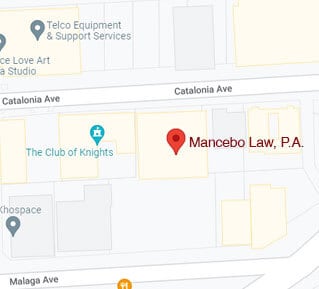 Buying and selling property can be overwhelming, especially in fast-moving markets such as Miami, Florida. It’s important to ensure that you are minimizing the potential complications during a real estate transaction – and minimizing your stress! This article will cover some of the essential information you should know about buying and selling property in Miami, such as:
Buying and selling property can be overwhelming, especially in fast-moving markets such as Miami, Florida. It’s important to ensure that you are minimizing the potential complications during a real estate transaction – and minimizing your stress! This article will cover some of the essential information you should know about buying and selling property in Miami, such as:
- The two most important factors to consider when you are buying or selling a property.
- How to create a list price for your property, and what role real estate professionals play in the listing process.
- Some of the common causes of closing delays – and how to avoid them.
What Are The Most Important Factors To Consider When Preparing To Buy Or Sell A Property?
The two best things you can do to prepare to sell your property or buy another is to make sure of two things:
- You should ensure that your property is in order and doesn’t have any issues.
- You should check that your finances are in order and there aren’t any unresolved issues, such as tax liens.
It’s also essential to know that once you enter into a contract to sell a property, you are obligated to sell that property unless the buyer defaults. As the seller, you cannot back out of the contract without risking a legal issue with the prospective buyer. This is one reason it is paramount to check both your own financial well-being and the property before buying or selling.
As a real-world example, our firm once had clients who agreed to sell their property for $750,000. However, they failed to disclose that they owed $800,000 on the property. When they signed the contract to sell the house, they never gave the buyer the short sale disclosure.
When it came time to close the deal, the buyer demanded that the sellers come up with the difference to cover the remaining debt owed on the property. My clients were confused and alarmed, and they made it clear that they didn’t have that type of money.
However, the buyer tried to force them to come up with the cash. He claimed that they were required to sell the property at the price they agreed to, and the new demand for money was not an issue nor a reason not to comply with the contract.
The best way to avoid these types of complications is to check your finances and the property before it is time to close. An experienced real estate attorney can guide you through this process to make sure nothing is overlooked.
How Should I Calculate The List Price When Selling My Property?
You should have an accurate valuation of your property, and your listing should be somewhere close to that price. Some people decide to list their property at an unrealistic price to see if someone will bid at a higher number that is not commensurate with the true valuation of the property. However, there is always an appraisal, and if the appraisal doesn’t match the set price, you run the risk that the deal will fall apart.
A realtor can help with this sort of valuation. They can do a comparative market analysis, which looks at many different factors, such as:
- The size of the property
- What condition the property is in
- What the property looks like
- The property amenities
- The location of the property
- And more…
The realtor will compare your property to the neighboring properties and the prices in the area. They will then advise you on the suggested list price to safely entice buyers – without pulling an unsustainable bait-and-switch that will ultimately destroy the contract.
When listing, you should also make sure that there are no open permits, code violations, liens, or fines on the property. This should always be checked before closing. While many of these issues can be resolved, addressing them during the closing process adds an additional layer of complication and difficulty.
What Are Common Issues That Could Delay Real Estate Transactions In Miami-Dade County?
One of the most common issues that hold up real estate transactions in Miami-Dade County has to do with open permits. Most people don’t realize that an open or expired permit is not a title issue, so it doesn’t impact the marketability of your title. This means you can close with an open or expired permit since it is not a title issue.
However, no buyer wants to purchase a headache. Therefore, all purchase or sales contracts should contain a clause addressing the resolution of any permit or code violation issues prior to closing. This clause should also state whose responsibility it will be to deal with these issues. Making this clear will help avoid unnecessary delays as a result of these issues.
Other issues that commonly delay closings include code violations on the property that were not previously resolved. In addition, citations for work done without a permit that became violations with running fines can hinder closing. Depending on the amount in question or the complexity of the issue involved, these problems can delay the closing.
Finally, a surprisingly common issue is when people have similar names or the same name as someone else. If one party has liens, judgments, or open conditions out on their name, these will appear in searches for the other party (since they share the same name).
When this occurs, the first step is to make sure that the person who is selling your prospective property is not the same person who has the judgment or liens against them. If you don’t make that distinction clear, it could hold up the closing.
What Are Some Issues That Can Occur When Closing On A Condo In South Florida?
Another set of issues that comes up frequently in South Florida relates to condominiums, which are very popular here. Projects that are being completed through the condo board can sometimes impede the closing process.
For example, if the condo board is repairing the guardhouse and they hire a contractor or take out a loan, they are required to issue a Notice of Commencement. This will come up if you are attempting to sell your individual condo unit.
This situation will require you to get an affidavit from the condo association explaining the project. From there, the condo association must resolve any outstanding issues before the title condition can be cleared.
How Does Marriage Impact Title Issues When It Comes To Purchasing Or Selling Property?
A title issue can occur when someone buys a property with a significant other in a way that complicates ownership. For example, a statement such as, “I bought this property with my boyfriend but we never got married,” can indicate ownership complications.
Or, perhaps a wife bought a property with her late husband while they were still dating and they never changed the ownership upon marriage. This can cause actual title issues, which can turn into probate issues.
With regard to title and probate, people often don’t realize their marriages from other countries are recognized in Florida. They might say, “I bought this property with my husband, but we’re only married in Cuba.” If you’re married anywhere, you’re married here in Florida.
If the property is your primary residence and you bought it together, your husband or wife must sign off on it during the closing, regardless of whether their name is on the title. This becomes especially tricky if one party wants to sell and the other is refusing. We cannot force the other party to sign, so these disputes can hold up a closing.
More Information
- What Kind Of Corporate Legal Services Does Your Firm Provide In South Florida?
- Can A Florida Condominium Association Or An HOA Restrict The Sale Or Rental Of A Condo Unit Or A Home?
- How Is A Homeowners’ Association Or A Condo Association Formed In Florida And Can Your Firm Assist In Forming HOA Or Condominium Associations In Miami-Dade County?
- Which Side Of The HOA Or CA Does Your Firm Work On Or Is It Both?
For more information on Real Estate Law in Florida, an initial consultation is your next best step. Get the information and legal answers you are seeking by calling (305) 363-6066 today.

Let's Get Started! Contact Us Now!
(305) 363-6066

